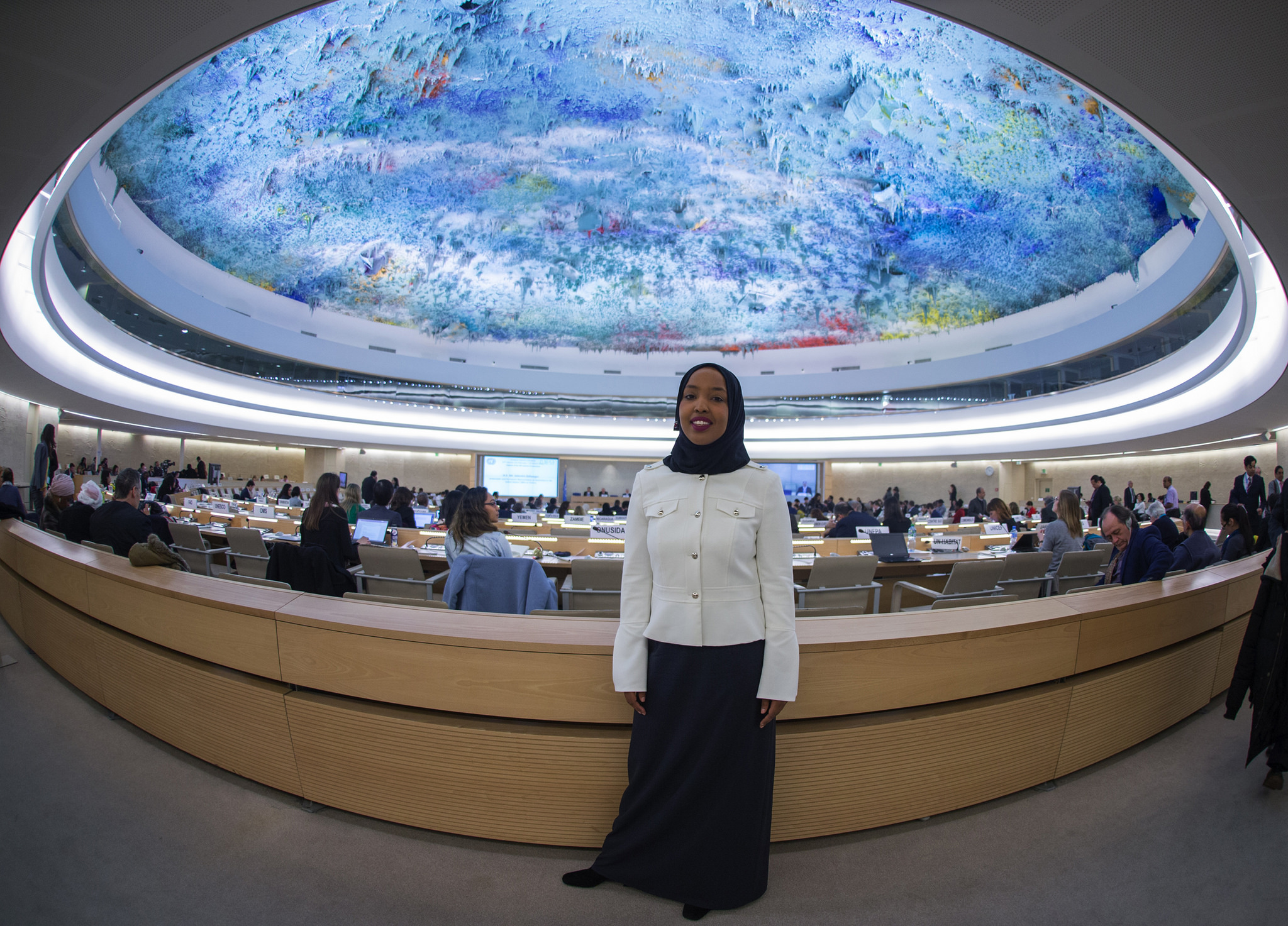Standing Up for Human Rights – From Geneva to Boston
By Munira Khalif, 2017-18 U.S. Youth Observer to the UN

In mid-March I headed off to Geneva, Switzerland for the 37th Session of the Human Rights Council. Made up of 47 member states, the Human Rights Council (HRC) works to promote and protect human rights globally. The Council touches on both country-specific issues and thematic issues such as freedom of expression and the rights of racial and ethnic minorities. Regular sessions are held three times a year—but with urgent matters a special session can be convened. The Council has a variety of tools that it uses to protect and promote human rights from the creation of an Independent International Commission of Inquiry to appointing a Special Rapporteur (independent expert) to calling for a Fact Finding Mission.
I would be remiss to not mention the rich history of the global city that is Geneva. Not only does Geneva, Switzerland house the Human Rights Council, but major international organizations like the World Health Organization (WHO), the UN Refugee Agency (UNHCR), and dozens of other agencies have their offices there. Located in the Palace of Nations, the Human Rights Council is situated within a building that is entrenched in founding of both the League of Nations (which predated the UN) and the United Nations. The grounds of the Palace are covered in art that has been gifted by countries from all across the globe, including many American artists. Even the materials used to construct the walls and floor can be linked back to various countries. It is truly an international meeting place.
While at the 37th Session of the Human Rights Council, there were three major events that stood out to me and gave me a better understanding of the international community’s response or strategy in dealing with a variety of human rights crises.
One of the first events that I attended was a High-Level Panel on the Rights of Syrian Children. The panel included statements from member states and from civil society. NGOs that worked on the ground not only spoke of the physical trauma faced by children in a war-torn country but also the psychological trauma. They spoke about how Syria was one of the most dangerous places to be a child. The panelists underscored how Syrian children were becoming a lost generation. With war interrupting their lives—education becomes a very difficult thing to secure. Schools not only lack infrastructure but they become targets for attacks.
Another key discussion that I was able to join was held by civil society organizations to bring together people who had defected from North Korea. The panelists spoke at great length about their individual experiences within a greatly oppressive society. One young woman called upon the international community to help reconnect her to her parents—which she had not seen in years after being forced to flee after being labeled guilty by association.
I was able to hear from the Fact Finding Mission and Special Rapporteur on Myanmar who spoke about their findings on the Rohingya Crises. They spoke about the brutality and violence inflicted on the Rohingya people—the methodical way in which Rohingya people were stripped of human rights. NGOs spoke on the poor condition of camps and working with women who had been victims of sexual violence. Although the Special Rapporteur is not allowed into the country, her use of social media and other contacts have helped her to bring forth a robust case on the human rights crises in Myanmar. The Fact Finding Mission will soon present their case to the Human Rights Council and come to a legal conclusion in the coming months.
Major Takeaways
Although we desire change to happen now, the complexity of these human rights issues often means that change is slow. We have to actively advocate for human rights, raise our voices, and not succumb to complacency.




